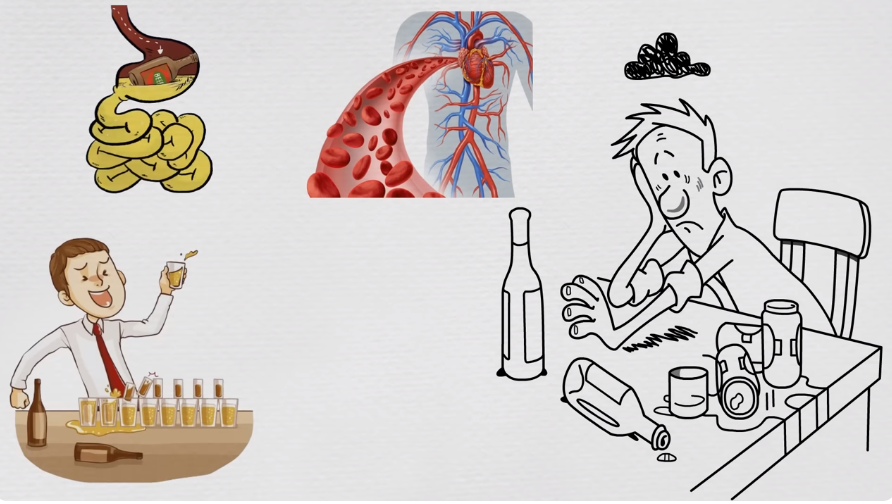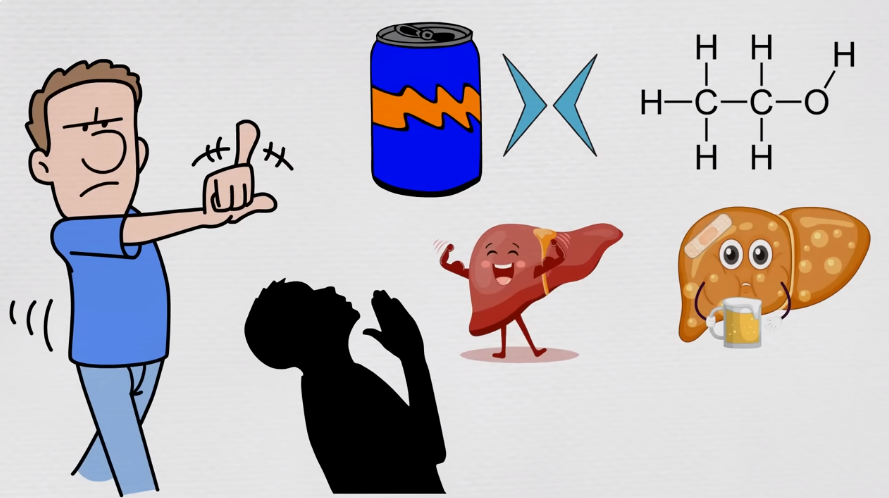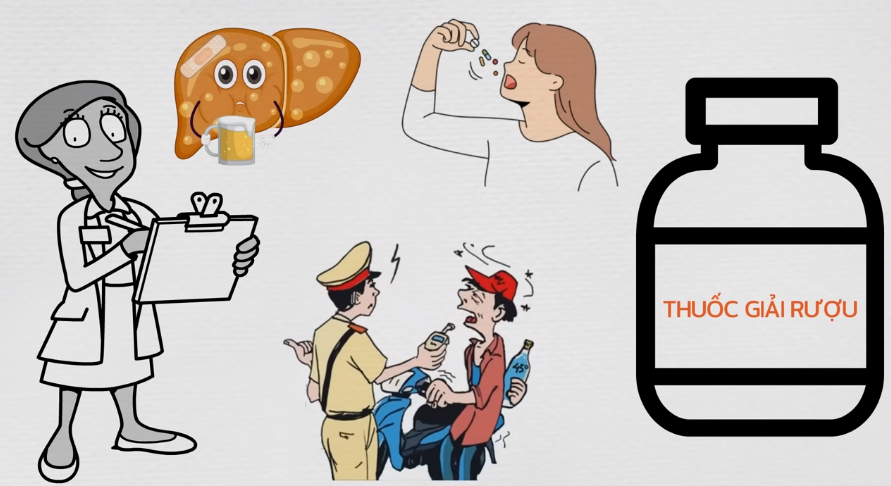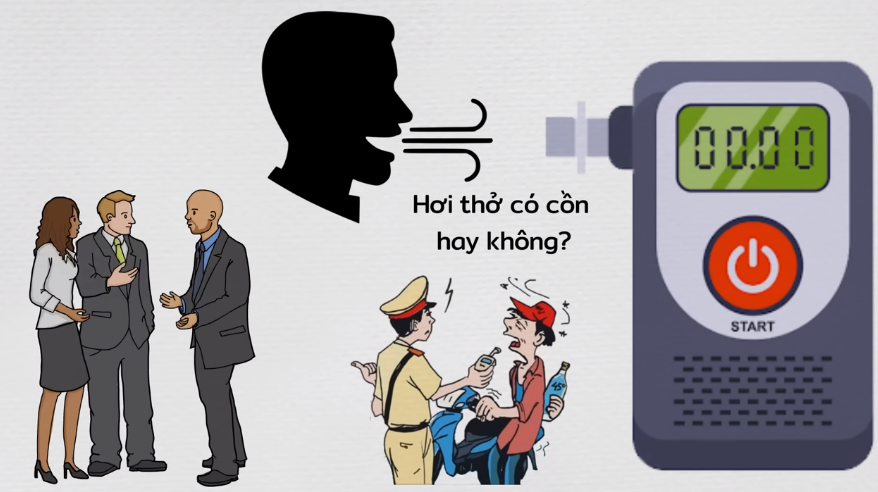During the Tet holiday, drinking alcohol is unavoidable for some people. Once you drink, it is naturally prohibited to participate in traffic, to drive, and you completely agree with this. However, there are situations where after drinking, you want the blood alcohol concentration to decrease quickly so you can drive out for fun. Clearly, waiting for a whole session to pass after drinking to be sober will be more enjoyable and confident than those who take a whole day to sober up.
So how can you reduce the blood alcohol concentration quickly? This is certainly a question for many people, and after researching, in this article, I will answer for you, which is actually also an answer for myself because during Tet, I often have to drink alcohol, and knowing how to drink safely without getting fined is even more important. So let's start exploring together.
If you search online, you will find many articles sharing tips on drinking alcohol to avoid being fined for blood alcohol concentration, meaning you can drink and not blow over the limit. Whether these methods are effective or not, from my research, most of them are not. Why is that?
The principle of drinking alcohol.

Alcohol is a chemical substance that we simply call ethanol. When you drink alcohol, it is fully absorbed and enters the bloodstream, with 80% absorbed in the small intestine and 20% in the stomach. Depending on whether your body is full or hungry when drinking, the absorption rate will vary. As we know, drinking alcohol on an empty stomach will lead to quicker intoxication, so to drink and feel less drunk, the first thing is to drink when full, which is better. Then, the alcohol will diffuse into the body's cells. For example, traces of alcohol can be found in breath, urine, cerebrospinal fluid, blood, etc., and this is also the basis for determining a person's blood alcohol concentration.
When the traffic police test for blood alcohol concentration, the alcohol present in the blood is transported to the lungs and excreted through breath. If there is alcohol in your breath, the traffic police will detect it, and you will be fined. So, to avoid being detected, we must solve one of two problems:
- First, we must eliminate alcohol from the blood; when there is no alcohol in the blood, there will be no alcohol in the breath, and no matter how you blow, it won't register.
- Second, we need to find a way to trick the breathalyzer into not detecting alcohol in your system.

In reality, there are methods to quickly reduce blood alcohol concentration, but it is not based on the idea that they will cancel each other out, because in the body, only the liver helps to metabolize and eliminate alcohol. So, to get rid of alcohol quickly, we can only sit and hope that our liver works hard to eliminate the alcohol.
That's why I still say that drinking Coca-Cola or other beverages can help reduce blood alcohol concentration faster. The issue is not the substance itself but the water; when you drink any liquid, you will intake a large amount of water, which will dilute the alcohol and help it be excreted faster through urine or sweat. Simply put, when you drink a lot of water, sweating increases, and alcohol will be expelled faster, so you will sober up quicker. Therefore, it is not necessary to complicate things by drinking Coca-Cola, Pepsi, or other drinks; just drinking plain water is sufficient. If you want to speed it up even more, as I shared in a previous article about drinking less to avoid getting drunk, you should exercise more, whether it's playing billiards or anything else, as long as you sweat more, the alcohol will leave your system faster. There is no miraculous drink that can make alcohol disappear from your body.
Currently, there are advertisements online for alcohol detox pills. Do they help reduce blood alcohol concentration quickly? The answer is both sad and happy: these detox pills do help reduce intoxication and help you feel sober faster, but they do not lower blood alcohol concentration.
Why is that?
Imagine this: the mechanism of drinking alcohol is that when you drink, the alcohol enters the blood, and the liver metabolizes it into substances that cause intoxication, leading to dizziness, headaches, nausea, and the desire to sing, etc.
Alcohol detox pills function to assist the liver in metabolizing alcohol, so the liver will metabolize it without producing substances that cause headaches and nausea. At this point, the alcohol is simply converted into water and CO2, thus alleviating symptoms like headaches, nausea, and fatigue significantly. I am not saying that these symptoms disappear completely because the effectiveness cannot reach 100%. Therefore, taking alcohol detox pills helps the body avoid intoxication, but it does not eliminate blood alcohol concentration.
Why do alcohol detox pills not help reduce blood alcohol concentration?

Simply because breathalyzers measure whether there is alcohol in the blood, how much there is, while detox pills only intervene in the liver's process of metabolizing alcohol into other substances. This means that the detox pills do not affect the amount of alcohol in the blood, and alcohol is still processed by the liver.
Imagine this: the alcohol in the blood is like fish in a river. The fisherman is like the liver, and the detox pill is like the chef. Normally, without the detox pill, the fisherman catches the fish, dries it, and sells it at the market. When there is a chef, the chef prepares the fish into delicious dishes right there.
We can see that whether the fish is cooked by the chef or dried, it is still a process after being caught; it does not affect how many fish are left in the river. Measuring blood alcohol concentration is like measuring the amount of fish in the river, so it is not affected by the chef or the detox pill. In reality, the detox pill may speed up the metabolism of alcohol, but there is currently no research showing this because the speed still depends on the liver, which is already working at maximum efficiency even without the detox pill. Currently, taking detox pills is ineffective for measuring blood alcohol concentration, but they do have a very good effect in preventing intoxication.
Additionally, you may see online tips suggesting that when testing for blood alcohol concentration, you should eat shrimp paste, chew gum, or even smoke. The explanation for these tips is that these foods or substances will mask the smell of alcohol in your breath, so when the smell of alcohol is overpowered, the breathalyzer will not register it. This is completely wrong; you can fool your partner's nose or even your dog's nose, but you cannot fool the breathalyzer because it does not care what your breath smells like; it only cares whether there is alcohol in your breath, and of course, the smell of alcohol will still be present. If there is still alcohol in the blood, there will still be alcohol in the breath; they are inseparable like a con artist and its nature.
Thus, we can hardly find a miraculous remedy that can eliminate alcohol from the body; the only way is to naturally eliminate it by drinking plenty of water and trying to exercise. So, is there a way to trick the breathalyzer into not detecting the amount of alcohol in your breath? I have researched the principles of some types of breathalyzers as follows:

The first and most advanced type uses a fuel cell sensor. In this sensor, the manufacturer creates a platinum oxide surface; when breath containing alcohol reacts with this platinum oxide, it produces a conductive substance, and then the current is measured. If the current is stronger, the reaction is stronger, indicating a higher amount of alcohol in the breath, thus producing a result showing the presence of alcohol and the percentage. To prevent this machine from detecting alcohol, one must stop the reaction between alcohol and platinum oxide or add a substance to create a non-conductive product, but I think there is no way to do that.
The second type of machine uses semiconductor technology with a tin oxide surface, which is similar. The third type is a classic machine using chromium oxide reaction, which works as follows: when breath contains alcohol, the alcohol reacts with chromium oxide to produce a black substance. The machine will calculate the amount of alcohol in the breath based on the darkness of the color. To avoid registering alcohol, something must be added to the breath to stop the reaction between alcohol and chromium oxide. However, this is not feasible.
In summary, the only way is to drink water and exercise a lot or to add another liver to eliminate alcohol quickly; otherwise, limit alcohol consumption. I wish you all to be careful, limit alcohol consumption, and avoid being fined by the police.
